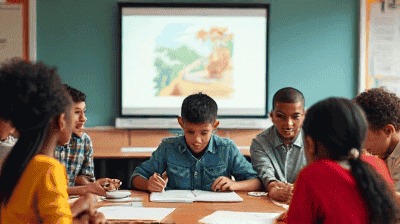Primary Education

The Power of Group Work: Collaborating in Primary Classrooms for Enhanced Learning
In today's educational landscape, collaboration and teamwork have gained prominence as essential components of effective learning. Group work in primary classrooms not only fosters academic achievement but also promotes essential social skills, critical thinking, and emotional intelligence among young learners. This article explores the significance of group work in elementary education, the benefits it offers, effective strategies for implementation, and the role of educators and parents in fostering colla

Outdoor Learning in Primary Education: Why Nature-Based Activities Matter
In an increasingly urbanized world where screens dominate daily life, the significance of outdoor learning in primary education is more relevant than ever. Nature-based activities offer unique opportunities for children to engage with their environment, foster creativity, and gain critical life skills through experiential learning. This article will explore the benefits of outdoor learning in primary education, effective strategies for incorporating nature-based activities, and how these experiences can enr

Cultural Awareness in Primary Education: Teaching Diversity Through Stories and Activities
In an increasingly interconnected world, fostering cultural awareness in primary education has become more important than ever. Early engagement with diverse cultures helps children develop empathy, understanding, and respect for people from various backgrounds. One of the most effective ways to teach cultural diversity is through stories and activities that celebrate different cultures. This article explores the significance of cultural awareness in primary education, the role of storytelling and activitie

Literacy Through Storytelling: Using Narratives to Enhance Vocabulary and Comprehension
In the digital age, the importance of literacy in elementary education cannot be overstated. The ability to read, comprehend, and communicate effectively lays the foundation for academic success and lifelong learning. Among the various methods utilized to foster literacy, storytelling stands out as a powerful tool. By harnessing the art of narratives, educators can enhance vocabulary, comprehension, and critical thinking skills in young learners. This article explores the significance of storytelling in lit
